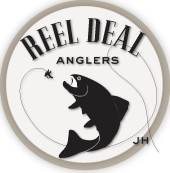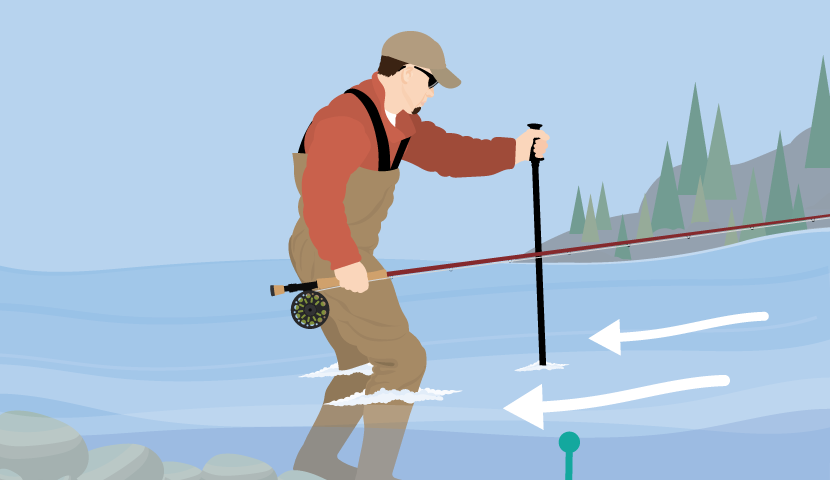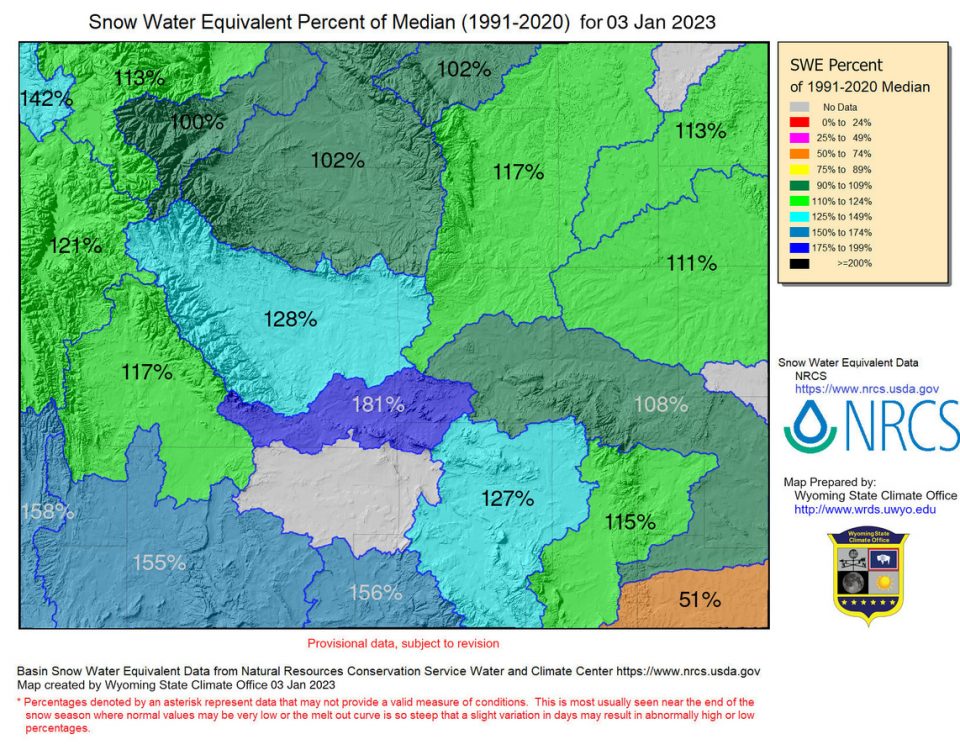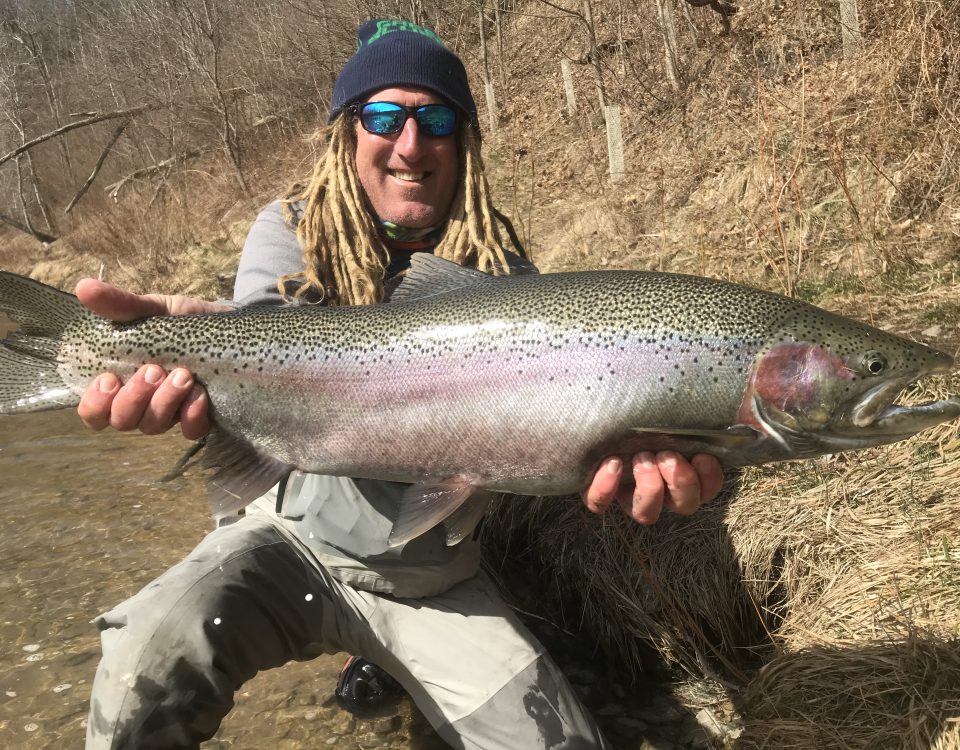Stay Happy and Healthy: Go Fishing
Troutfest Donation
December 11, 2017
Gotta go to know!!!
February 8, 2018Stay Happy and Healthy: Go Fishing
Fishing is a rewarding sport that can be exciting and relaxing at the same time. It is also a wonderful and often overlooked way for anyone to burn calories while having fun in the outdoors. Many people assume fishing just means sitting around in a boat or on the bank waiting for a bobber to go under, but it can be so much more than that. In reality, there are many types of fishing that challenge you both physically and mentally. From stalking rising trout while wading in a mountain stream to kayaking on the open ocean while trolling for yellow fin tuna, there is a type of fishing that will keep your mind and body engaged no matter your interest or experience level. If you are looking for a way to de-stress, stay fit, and enjoy being outside, fishing might just be for you.
Wading in a Stream Burns Calories
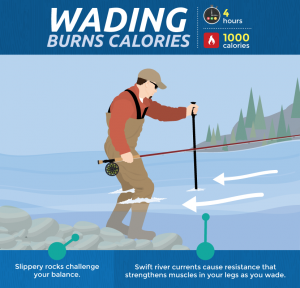
Physical Benefits
One of the not-so-evident benefits of fishing is that it is a great way to get some exercise. Of course, you aren’t going to burn many calories sitting on the shore and drinking beer, but an active day spent wading in a stream or hiking to a remote lake is a fantastic way to get a workout without going to a gym or a yoga class. Consider that a person of average body mass and fitness level will burn about 250 calories in an hour of walking on a treadmill.1 Actively fishing can involve a number of activities, such as wading against the current in a stream, hiking, repeatedly casting and reeling, and even climbing or boulder hopping in certain kinds of terrain. It is estimated that even light wade fishing burns over twice as many calories over a one-hour period.2 Spending time in the gym is great for short, high-intensity workouts, but it can be a hard habit to build for people who aren’t used to lifting weights. Being active doesn’t have to be a chore. During a morning or afternoon of fishing, you could burn from 500-1,500 calories without even realizing it.
Fishing is a Total Body Workout
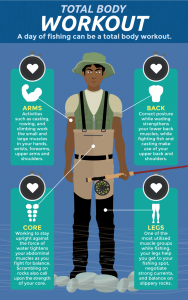
Fishing is not just a great way to burn calories; it also calls upon small muscle groups we don’t normally use and helps us build fine motor skills. Navigating rough terrain and slippery rocks while resisting the current in a river challenges your balance, building strength in the little-used muscles and tendons in your feet, ankles, calves, and shins. Hiking up steep slopes or riverbanks builds strength in the large muscles of your legs, such as the quadriceps and hamstrings. These activities also provide a solid cardiovascular workout, especially at high altitudes where you can find some of the best trout fishing. The best fishermen learn to develop casting accuracy through practice. This helps build hand-eye coordination and strengthens the small muscles in your hands, wrists, forearms, biceps, triceps, and shoulders. Fishing is such a great, low-impact activity that it is widely used as a rehabilitation therapy by psychologists, counselors, and physical therapists. Even the U.S. Veterans Health Administration has adopted the use of fly fishing and fly tying as a recreational therapy for injured military veterans because these calming, repetitive, low-impact activities help them regain strength and the use of their muscles.
Casting Works The Arm Muscles
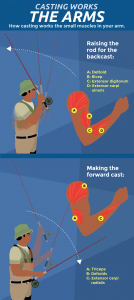
Although it may not feel like it while you are out on the water, spending a few hours at the river or lake can be a great workout. Going fishing is not only a fabulous way to stay active and healthy but it is also a perfect activity to help calm your mind, relax, and let go of the stress in your life.
Mental Benefits
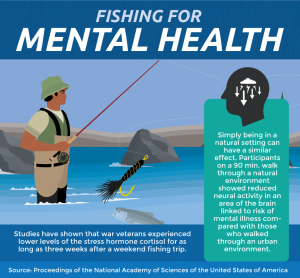
Fishing is by nature a reflective and meditative activity that forces you to slow down and enjoy your surroundings. People fish for many reasons. Some fish just for food and some for sport, while others just want an excuse to be outside or get together with friends. No matter what gets them out there, any fisherman can attest to the supreme sense of relaxation and calmness that spending a morning or evening doing their favorite activity provides. This very quality has made fishing a popular therapeutic exercise used by counselors and therapists who work with veterans, people with chronic illnesses, and others who have experienced trauma in their lives.
Why Do People Go Fishing?
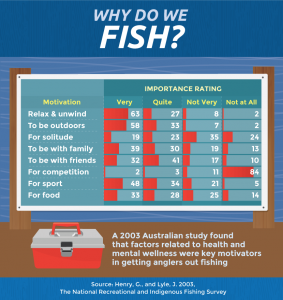
Whether you are trying to cast to a far-away pocket on the opposite side of the stream or observing an insect hatch to determine what the fish are biting on, fishing challenges your mind and demands your undivided attention. Therapeutic experts claim that, because fishing requires focus, it helps take a person’s mind off internal conflict.4 Locating fish, developing a strategy, choosing the correct fly or lure, and properly presenting that lure to the fish all require critical thinking and creativity, which allow a healthy escape from stress, depression, and anxiety.
This has been proven in clinical studies in which cortisol (a hormone linked to stress) levels were measured in a group of Iraq war veterans before and after a weekend of fishing. Those who had been on the fishing trip experienced lower levels of cortisol for as many as three weeks afterward. Researchers noted that their patients slept better, expressed lower levels of depression and anxiety, experienced fewer symptoms of somatic stress, and were far less likely to experience the feelings of guilt, hostility, fear, or sadness normally associated with PTSD and traumatic experiences.
Fly fishing expeditions are also a key element of the program “Casting For Recovery,” which serves to organize fly fishing trips for survivors of breast cancer, both as a therapeutic measure and as a form of physiotherapy. This volunteer-based service provides free fly fishing retreats as a means to make support groups for breast cancer survivors more accessible.
One of the greatest things about fishing is that anyone can participate. It doesn’t matter how fit you are, whether you are old or young, woman or man. There are no restrictions or limitations. It is one of the world’s most popular recreational activities for good reason. It has helped countless people with chronic illness, post-traumatic stress, and debilitating injuries to recover and live full, healthy lives. It allows us to explore our natural world and stay active well into old age. Fishing is a calming, enjoyable activity that has the power to transform your outlook on life. Try grabbing a rod and heading for the river. You may just reel in a better way to live.
